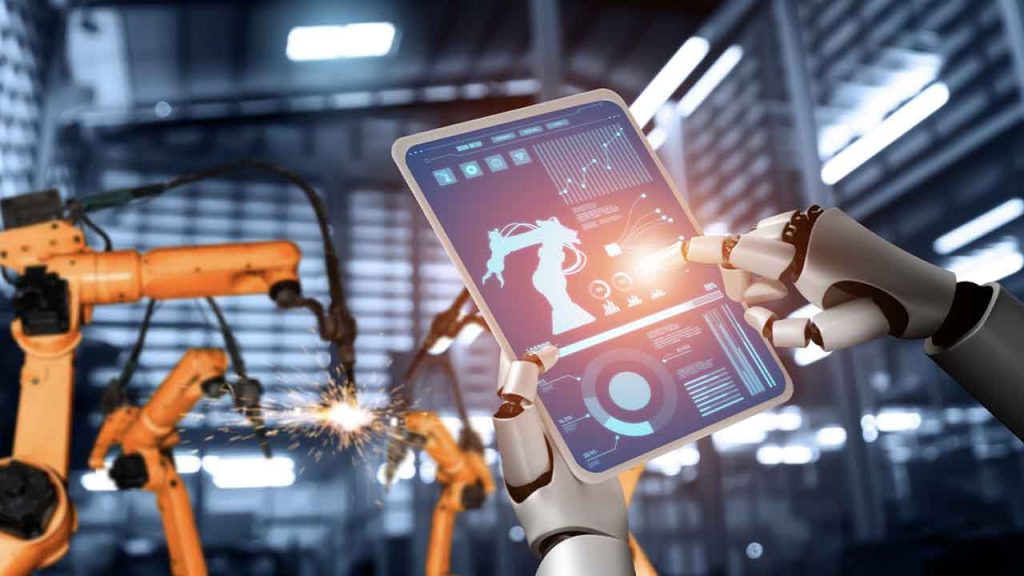AI in Manufacturing Enters Its Third Wave: The Rise of Autonomous Agents | SPONSORED
At Hannover Messe 2025, AI isn’t just a buzzword—it’s a battleground of ideas. While many vendors promise intelligence, Francisco Almada Lobo, the CEO of Critical Manufacturing, offers a structured, visionary framework for how manufacturing will truly evolve in the next five years.
It starts with recognizing a shift already underway: manufacturing is entering the third wave of AI. And it’s not about dashboards or predictions anymore—it’s about intelligent agents that can think, act, and adapt in complex, high-stakes environments.
Beyond Predictive: A New Class of Industrial Intelligence
The first generation of AI brought analytics to the factory floor—structured reports, dashboards, and basic data visualizations. The second wave added machine learning, allowing predictive models to anticipate maintenance needs or process deviations.
But the third wave? It’s agentic AI—systems that don’t just predict outcomes but execute decisions autonomously.
These generative AI agents:
- Combine diverse data sources and digital tools
- Reason through non-linear, non-deterministic problems
- Evaluate their own decisions and improve over time
They’re capable of completing tasks based on goals, not instructions—an essential trait in manufacturing environments marked by uncertainty and complexity.
Supply Chain Resilience Needs a New Intelligence Layer
Global manufacturers face daily volatility—from shifting tariffs to raw material shortages and regional instability. Traditional supply chain software can’t keep up with the speed and complexity of these changes.
Here’s where intelligent agents shine. Embedded into a modern MES or data platform, they can:
- Analyze supplier performance in real-time
- Adjust sourcing strategies dynamically
- Flag anomalies and suggest proactive actions
- Continuously learn from supply disruptions to improve future responses
Rather than relying on static rule sets, these agents evolve based on feedback and results—mirroring the real-world complexity they operate within.
Preparing the Infrastructure: Open Platforms Win
Almada Lobo is clear: the AI revolution in manufacturing will not be powered by black-box tools but by open, modular platforms that are ready to integrate with future intelligence.
At Critical Manufacturing, this means:
- A unified automation and execution foundation to control operations
- A flexible data platform that supports seamless ingestion, contextualization, and access
- Compatibility with emerging AI frameworks, including agent-based architectures
This openness is essential to future-proof manufacturing environments—and to give manufacturers the freedom to adopt the best tools as the technology evolves.
The Hidden Cost of Standing Still
Many small and mid-sized manufacturers still assume AI, MES, and smart platforms are too costly or complex for their scale. That belief, says Almada Lobo, is increasingly outdated.
Subscription-based MES models, preconfigured use cases, and AI-enabled platforms are now accessible at nearly every tier of the market. And as complexity increases, not having an intelligent execution system can end up being the most expensive decision of all.
Toward 2030: The Intelligent, Modular Factory
Looking ahead, Almada Lobo outlines a future where factories are modular, intelligent, and autonomous by design. Manufacturers will need:
- A strong automation layer to maximize physical assets
- A dynamic MES to govern execution, compliance, and traceability
- A scalable data platform to unify operations and enable AI
- A layer of autonomous agents that turn data into adaptive, real-time decisions
This isn’t just a tech stack—it’s the architecture for resilience in a world where agility is the most valuable currency.The third wave of AI is no longer theoretical. It’s starting to shape how leading manufacturers navigate complexity. Those who prepare today—with open platforms, integrated systems, and a readiness to adopt agent-based intelligence—will be the ones shaping the future of industrial performance.
This article is based on a video interview with Francisco Almada Lobo, CEO of Critical Manufacturing, recorded live at Hannover Messe 2025.
For deeper insights into the future of MES, AI, and smart manufacturing, join Critical Manufacturing at MES & Industry 4.0 International Summit 2025 in Portugal.
Sponsored by Critical Manufacturing
Related articles:
